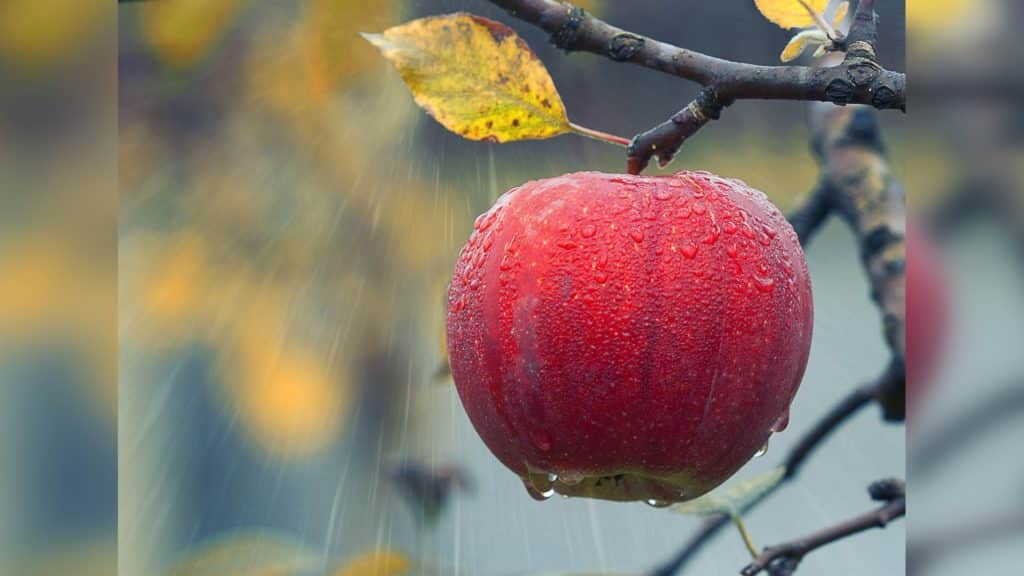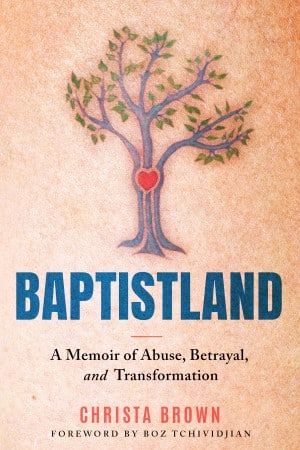“When did the fruit of the Spirit become optional for Christians?”
A friend asked me this as we sat at a laminated table eating big salads in a little take-out restaurant facing a riverway. It was a recent gorgeous September afternoon, that rare kind of day that is neither too hot nor too cold, but just right.
A virtuous day, one might say, drawing on Aristotle’s definition of virtue as the moderation between extremes.
Virtue, however, isn’t just an abstraction of ancient Greek philosophers. Virtue is the fruit of the Spirit-filled Christian.
This concept of virtue is reflected in Paul’s letter to the Galatians where he contrasts the acts of flesh with the fruit of the Spirit. First, he warns the Christians not to walk in the flesh. He writes in Galatians’ fifth chapter: The acts of the flesh are obvious: sexual immorality, impurity and debauchery; idolatry and witchcraft; hatred, discord, jealousy, fits of rage, selfish ambition, dissensions, factions and envy; drunkenness, orgies, and the like.
Your tax-deductible gift helps our journalists report the truth and hold Christian leaders and organizations accountable. Give a gift of $30 or more to The Roys Report this month, and you will receive a copy of “Baptistland: A Memoir of Abuse, Betrayal, and Transformation” by Christa Brown. To donate, click here.
That’s quite a list!
It’s hard to go a day without seeing Christians publicly pointing out the prevalence of certain kinds of sexual immorality and debauchery, whether in the classroom, school bathrooms or the halls of Congress and state capitols. But when was the last time you saw a viral story about hatred, selfish ambition or jealousy in the church?
I suspect Paul would like to have a word.
He does, actually:
“I warn you,” he continues, “as I did before, that those who live like this will not inherit the kingdom of God.”
This passage should stop every serious Christian cold. Paul’s “this” covers an awful lot of sins.
However, Paul then goes on to paint a dramatically different picture, full of light and life, that contrasts dramatically with the previous one:
But the fruit of the Spirit, he writes, “is love, joy, peace, forbearance, kindness, goodness, faithfulness, gentleness and self-control. Against such things there is no law. Those who belong to Christ Jesus have crucified the flesh with its passions and desires. Since we live by the Spirit, let us keep in step with the Spirit.”
I’ve thought a lot about the fruit of the Spirit lately.
Actually, it’s been foremost in my mind since 2015 when I made my pinned post on Twitter (now X) a summary of this passage.
But the fruit of the Spirit is love, joy, peace, forbearance, kindness, goodness, faithfulness, gentleness and self-control.
— Karen Swallow Prior (Notorious KSP at The Priory) (@KSPrior) July 26, 2015
I did so because that is when I began to be subjected to vicious attacks from far-right bloggers claiming to be Christians. Before that, I honestly never knew that people who claimed to be Christians would treat one another that way. I think many of us have experienced similar shocks.
I have also thought about the fruit of the Spirit a lot since then because it hasn’t always been easy to avoid walking in the flesh in response, not only to such attacks, but also to so much that has been happening over the past few years to the church, to the culture, to our nation and to our social discourse. It’s disorienting. It’s disappointing. It’s infuriating. It’s hard.
I’ve thought about the fruit of the Spirit more recently because I had the joy of digging more deeply into the book of Galatians this year by reading Eugene Peterson’s classic commentary on it, “Traveling Light,” and writing a foreword to a new edition of the book.
Peterson’s commentary points to how this entire letter by Paul is centered on freedom in Christ. The ultimate fruit of union in Christ is freedom, Paul writes elsewhere in a letter to the Corinthians. “Where the Spirit of the Lord is, there is freedom.” The fruit metaphor that Paul uses is so powerful and apt, Peterson explains, because the process of bearing fruit (natural or spiritual, literal or metaphorical) is long, complex and organic. It’s a process that requires care, attention and intention. And the supernatural fruit of the Spirit requires the work of God and his grace. He makes it possible. But we choose to allow it or not.
Thus, my friend’s very simple but pointed question.
When indeed did the work of the Holy Spirit, which all trinitarian Christians understand to be God himself and Christ himself, become optional?
It didn’t, of course.
A while back, I saw a post that said, “‘The way of Jesus’ is code for progressive ‘Christian.’”
I clicked on the account, sure it would be a hilarious parody account. It was not.
Jesus said, “By their fruit you will recognize them.”
Then, just a few verses later in the New Testament book of Matthew, Jesus offers a chilling warning, “Not everyone who says to me, ‘Lord, Lord,’ will enter the kingdom of heaven, but only the one who does the will of my Father who is in heaven.”
What is the will of God?
Well, the Hebrew Bible sums it up nicely in the sixth chapter of the book of Micah:
And what does the Lord require of you?
To act justly and to love mercy
and to walk humbly with your God.
Paul’s description of the fruit of the Spirit in Galatians is a kind of gloss on this passage. Justice, mercy and humility are Christian virtues. To act justly, to love mercy and to walk humbly with our God both requires and reaps the fruit of love, joy, peace, forbearance, kindness, goodness, faithfulness, gentleness and self-control.
Notice, too, that it’s not fruits, plural. It’s fruit, singular. When we are filled with the Spirit, we bear all the fruit. Not just some. There is no tree that can bear so many varieties except one: the tree of life.
As I have been tested and tried (and have failed more than I wish to admit) in my very public (and private) Christian life over the past few years, months and even days, the only answer I know is to ask the Lord to fill me, and fill me again, with his Spirit.
It’s not optional.
This article was originally published by Religion News Service and does not necessarily reflect the opinions of The Roys Report.

Karen Swallow Prior, Ph. D., is a reader, writer, professor, and columnist at Religion News Service. She is the author of several best-selling books. Her most recent is The Evangelical Imagination: How Stories, Images, and Metaphors Created a Culture in Crisis. She lives in Virginia.





















5 Responses
Thank you very much for this thought provoking article. I read a devotional this morning about examining ourselves (2 Corinthians 13:5-6), which we Christians would do well doing on a regular basis. We should be praying as David in Psalm 139:23-24 and Psalm 51:10-12. We need to take the logs out of our own eyes.
I actually had an experience probably a couple of months ago now where I woke up with my head (quite loudly) reciting the fruit of the Spirit over and over, word for word, when I could not recall the full list word for word before that. It just amazes me how God sometimes gets our attention to drill something into us.
I sense that the fruits of the spirit should be approached generically. Where the fruits of the spirit as understood by a particular Christian or group of Christians, would be a subset of that genre. Those relying on epistemology other than the Bible, and winning through to associated ontology, yielding another subset.
The flesh as defined by Paul, is too narrow, too confined to radical excesses, to tied to making a particular theological point. Turning away from the flesh is not virtuous in Greek perspective. Better to respect and speak of the flesh in a more balanced and peaceful way. The flesh really is neutral, more an instrument in which spirit expresses and reveals itself.
Karen suggests that the fruits of Christian spirit are as she suggests she personally aspires to. She then suggests that other Christians are absent such fruits. However the fruits of the Christian spirit are whatever is mediated in the individuals comprising the community of Christians.
Hello Colin,
Could you further explain your paragraph beginning with ‘the flesh’? I am interested and curious to understand what you are communicating, and was not clear on it. thanks!
Fruit of the Spirit is a question of soteriology. If one has been Born Again, bearing fruit is a natural result. When I was a child, I lived near a vacant lot that had a black raspberry bush. No one watered it or fertilized it. Rain watered it in the spring and summer. Yet every year it produced tasty berries. That was its nature. It couldn’t help but produce fruit, although some dry years the berries were sparse. With a little fertilizer and more watering, it would have produced much more. If (and that’s a very big if), we’ve been Born Again, bearing fruit will be our new nature helped along by watering and fertilizing.
Thanks KSP for this timely reminder.
Very few things stir conviction in myself or disappointment in many current “christian” leaders as a recitation of the fruits of the Spirit.